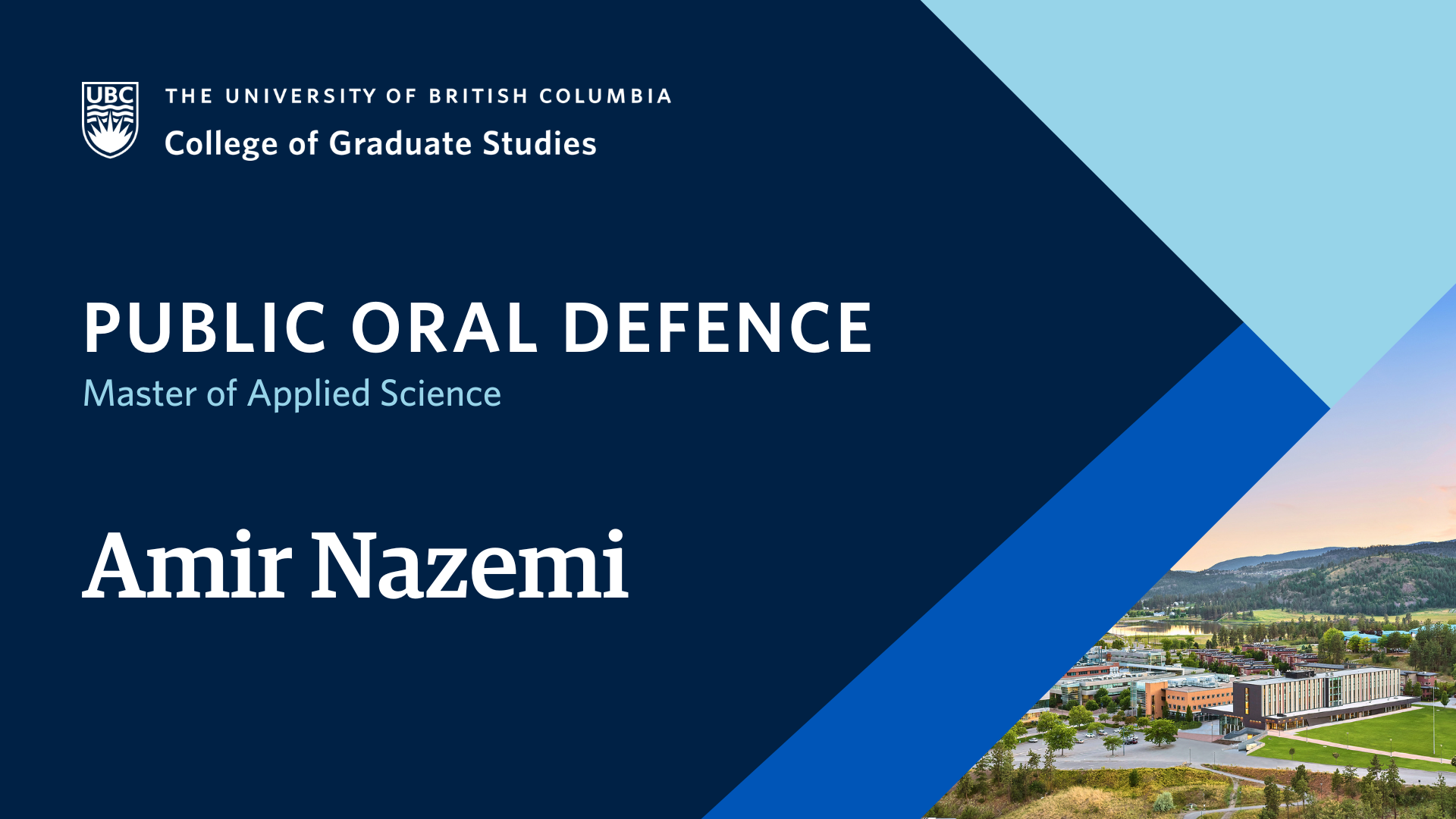
- This event has passed.
Thesis Defence: Dynamic, Particle-Based Simulation of Industrial Handling and Draping Process of Textile Semi-Finished Products
November 29, 2022 at 11:00 am - 2:00 pm

Amir Nazemi, supervised by Dr. Abbas S. Milani, will defend their thesis titled “Dynamic, Particle-Based Simulation of Industrial Handling and Draping Process of Textile Semi-Finished Products” in partial fulfillment of the requirements for the degree of Master of Applied Science.
An abstract for Amir’s thesis is included below.
Defences are open to all members of the campus community as well as the general public.
Registration is not required for in-person defences.
ABSTRACT
The superior strength-to-weight ratio of woven fabric composites, along with their high formability, is one of the primary design parameters defining their increased applications in modern manufacturing processes, including those in aerospace and automotive. However, complex geometries of finished components still continue to bringing several challenges to designers as they need to cope with manufacturing defects with a minimal overhead cost. Wrinkling is a common defect occurring during the forming processes and handling of semi-finished textile composites. One of the main reasons for this defect is the weak bending stiffness of fibre yarns in the unconsolidated state of the fabric preform, causing an excessive relative motion between the fibres during out-of-plane deformation. This challenge can be further exacerbated when using specialized blank holders in forming set-ups. For forming simulations of fabric composites, Finite Element (FE) method has been a longstanding means to predict and mitigate manufacturing defects. Such simulations are predominately intended to not only predict the onset, growth, and shape of wrinkles, but also to determine the best processing conditions that can yield an optimized positioning of fibres upon forming (or optimum robot handling in the case of automated processes). However, the need for the use of small-time steps via explicit FE codes, facing numerical instabilities, as well as large computational time, are among some drawbacks of the current FE models in composites forming research, also hindering their extensive use as fast and yet efficient digital twins in pertinent industries. This thesis presents a novel woven fabric simulation technique through a so-called material point method (MPM), which enables the use of much larger time steps along with fewer numerical instabilities, hence the ability to run significantly faster and yet efficient forming simulations. As a preliminary case study, both standard 2D deformation modes as well as a 3D hemispherical forming set-up is employed, using a plain weave test material. The MPM results are compared to the conventional FE simulations, as well as to the physical experiments. Overall, the MPM method showed a run time around 20 times faster than its FE counterpart in the present study, yet with a very comparable reliability on forming parameters predictions as verified by different metric during experiments. Such a fast simulation tool is believed to have a potential to sizably enhance the development of emerging automated fibre handling and preform processes under the emerging AI-based smart manufacturing paradigm.